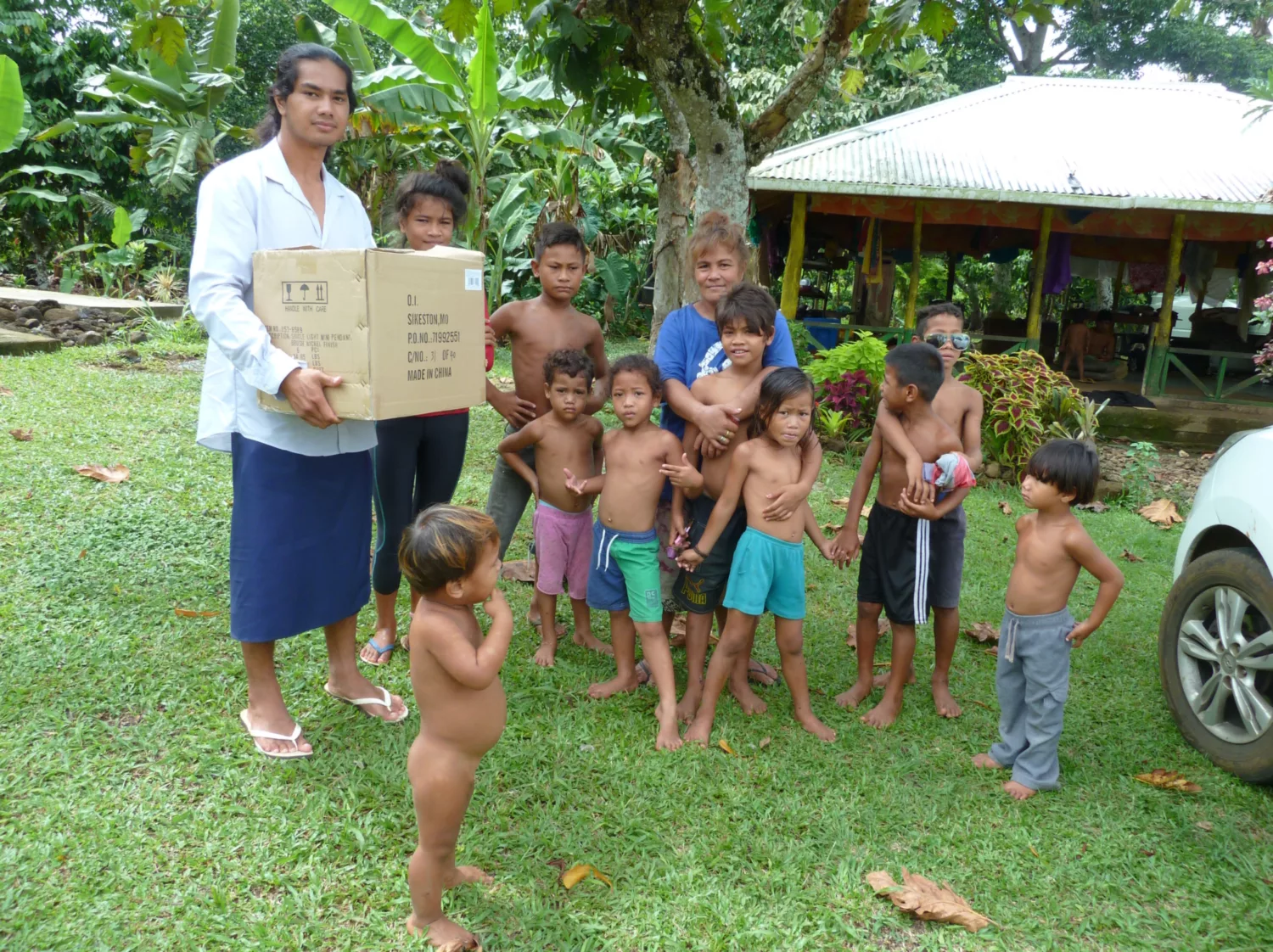Welfare
The welfare arm of our work aims to ensure that no family is socially, educationally or financially disadvantaged because they have suffered from leprosy. Leprosy is a disease of poverty, therefore assistance with adequate housing, getting an education, having enough to eat and assistance with earning an income are important to help families to get out of the poverty trap and secure a better future.
Adequate housing with space for all the family, separate cooking and washing facilities and sanitation facilities can make a huge difference to a family’s health.
Joshua lived in this bure in his village in Fiji with his wife and two teenage children. He has disabilities caused by leprosy and isn’t strong enough to build himself a better house, and because he can’t work, he couldn’t afford the materials for the house, or to pay someone to build it for him. Living here wasn’t doing his health any good, nor was it good for his family. In addition, his poor housing set him apart from other people in the village leading to stigma and discrimination in his community.
With the help of our representative in Fiji, Joshua planned the house – the size and number of rooms and the position in the village. Under the Fijian system, Joshua has a right to build a house in his village – he doesn’t have to buy the land to build it on.
After comparing two or three quotations for the materials and labour to build the house, work began. Within a very short time the house was complete. It has a living area, two bedrooms, a kitchen, shower room and toilet. Electricity runs to two small lamps inside the house – they don’t use much power, but the light means that the children can see to do their homework in the evenings. Joshua can pay for the electricity out of his welfare payment of around $75 per month.
Joshua’s family are much happier and healthier now and the children will soon successfully complete their schooling.
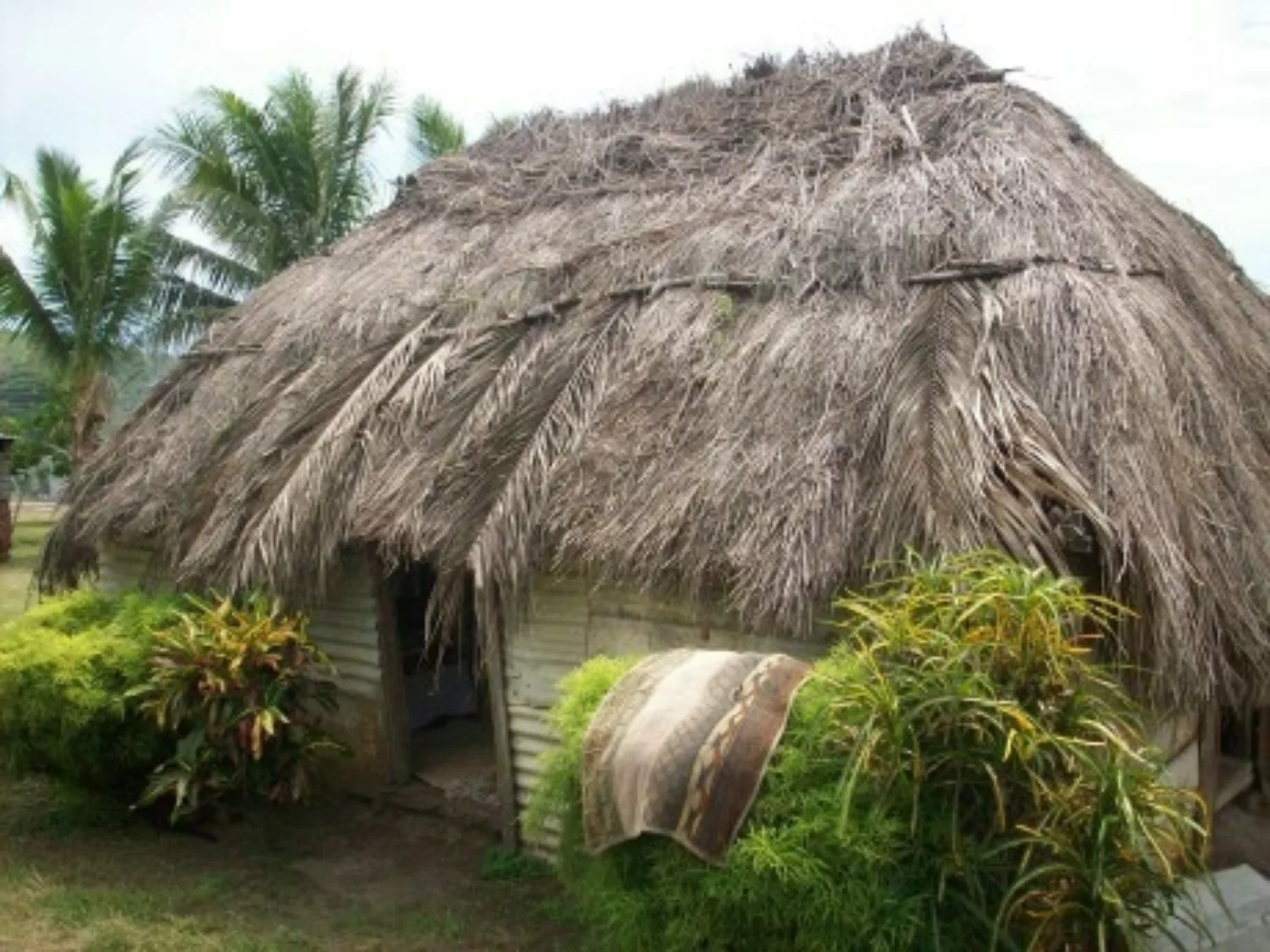
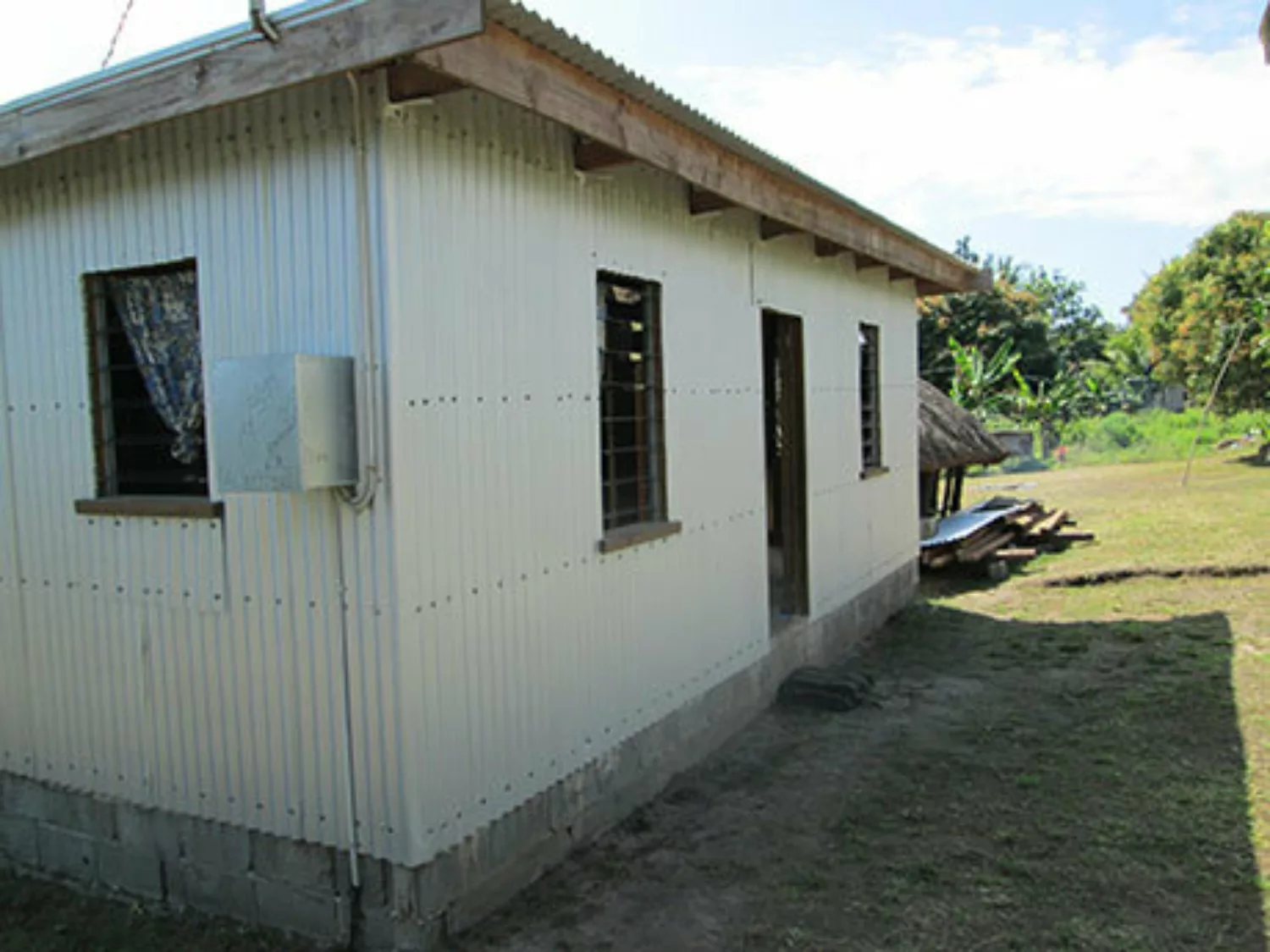
Education
Many countries in the Pacific don’t have a free education system, and even in those countries that do provide free schooling, many of the associated expenses such as uniform, books, stationery and transport are beyond the means of our clients. Assistance with these costs means that the children can grow up to live and work independently, and in many cases assist their families financially as well.
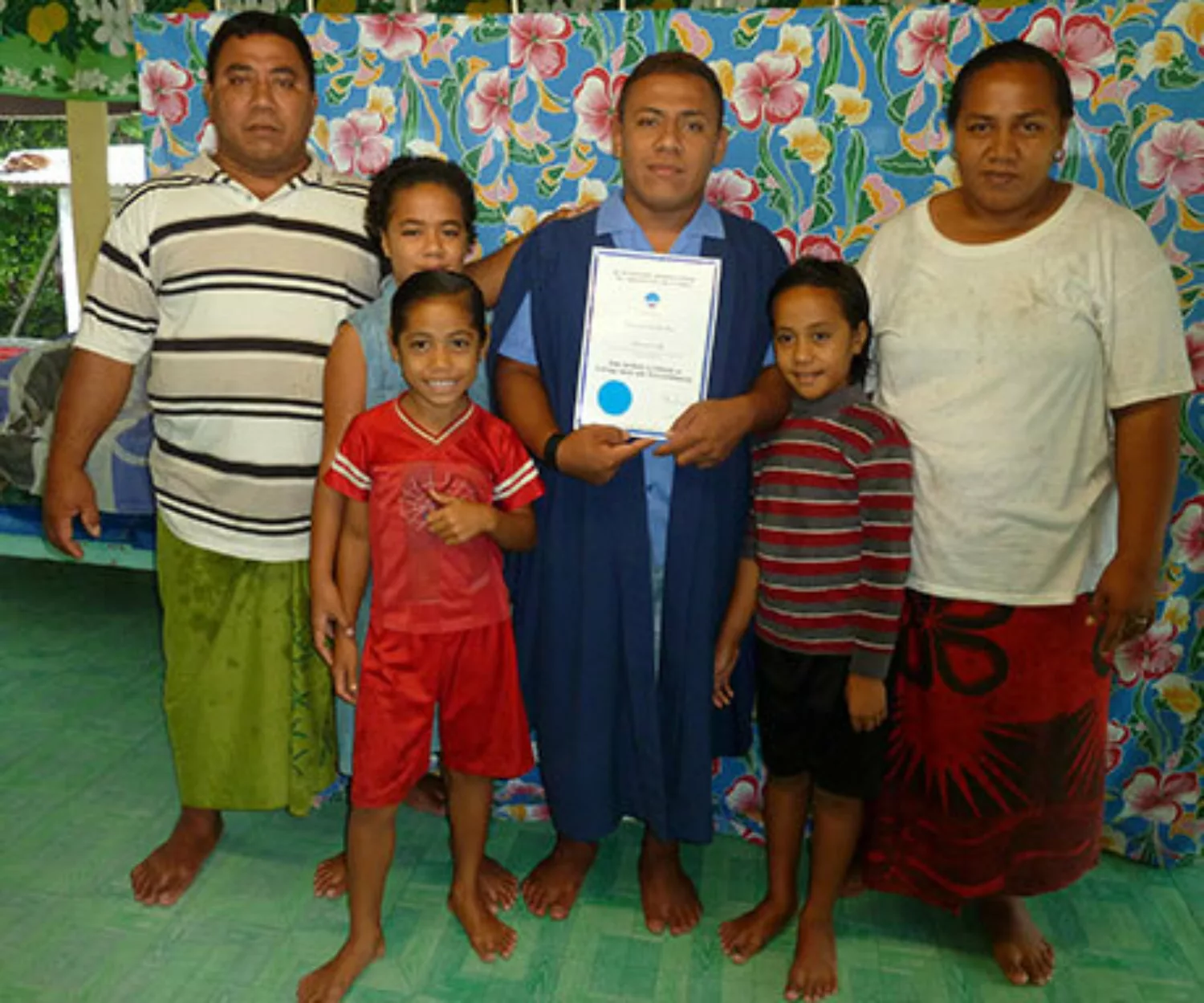
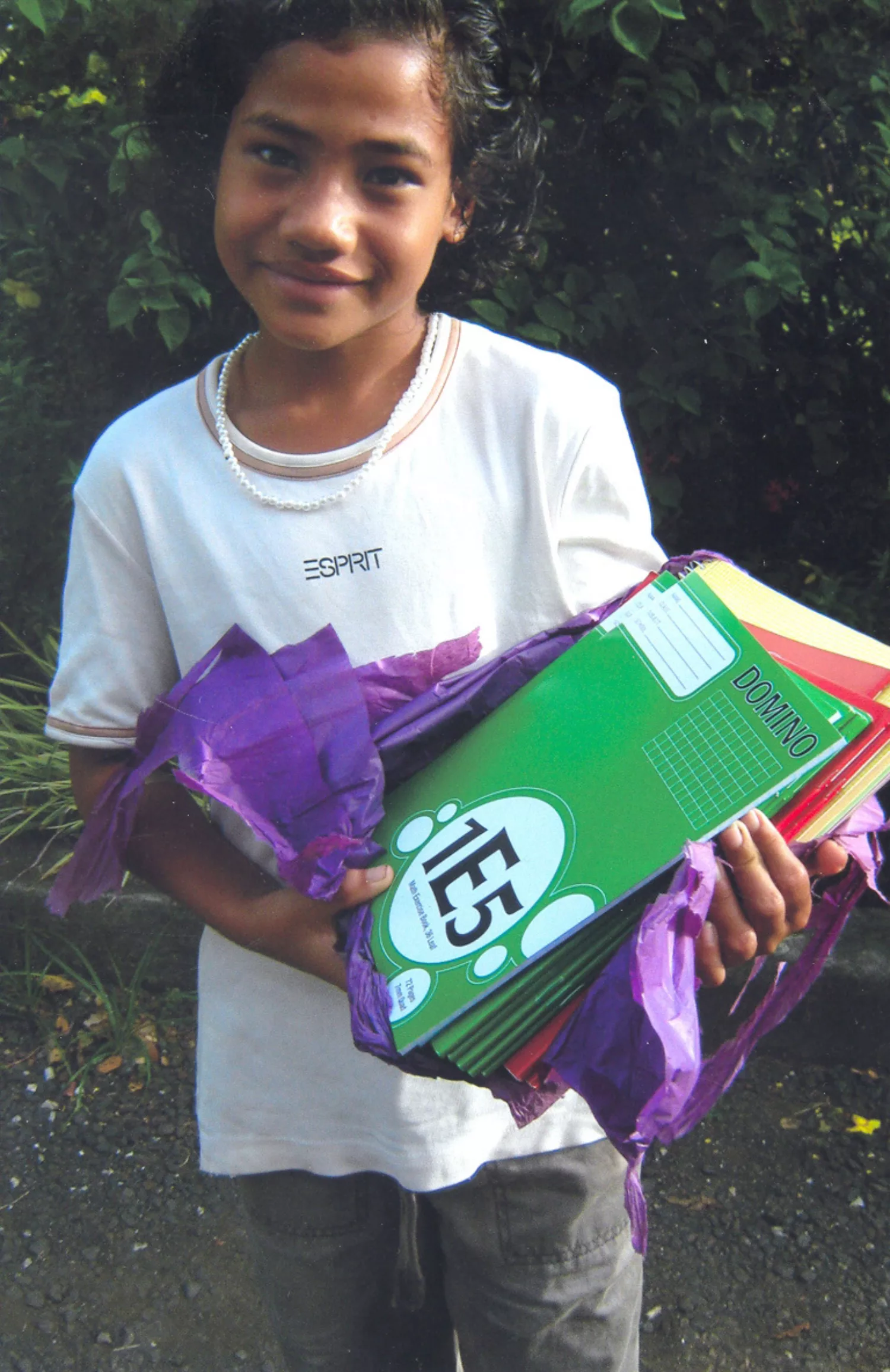
Welfare
The term welfare, to us, encompasses anything which makes current and former leprosy patients able to lead happier, healthier and more comfortable lives, similar to the life they might have led if sickness and disability hadn’t intervened.
It includes a regular supply of basic needs such as rice, kerosene, soap etc, help with transport, clothing, toys, drinking water, craft materials, crutches, wheelchairs, Christmas hampers and, sadly, sometimes help with funeral costs.
